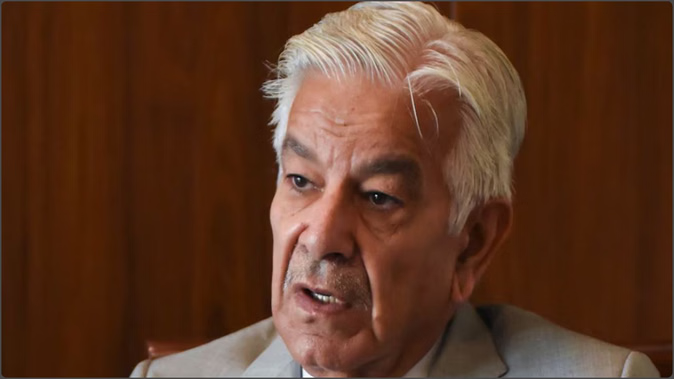Pakistan’s Hybrid Governance Model: Khawaja Asif Admits Military and Government Share Power
Pakistani Defense Minister Khawaja Asif has openly acknowledged that Pakistan operates under a “hybrid model” of governance, where both the military and the civilian government jointly make decisions. Speaking in a recent interview, Asif emphasized that the military holds a significant role in policymaking, and all major decisions are reached by consensus.
Army Chief’s Influence Explained
When asked why the army chief wields so much influence that even the defense minister seems subordinate, Asif clarified: “It’s not entirely the same, but decisions are made collectively. We may have disagreements, but ultimately, the collective decision prevails.” On being compared to the US system, where the Defense Minister can dismiss generals, Asif dismissed it as a “deep state,” implying Pakistan’s model is different and adapted to local realities.
Asif Praises Hybrid Governance
According to Pakistani media reports, Asif has previously described this hybrid system as a “practical necessity” for addressing Pakistan’s economic and administrative challenges. While he acknowledged it is not an ideal democracy, he insisted it is functional and effective in the country’s current context.
Pakistan-China-US Relations
Asif also addressed Pakistan’s diplomatic balancing act between China and the US. He stressed that China remains a strategic priority: “Our relationship with China is decades-old and based on trust. China is our largest supplier of weapons, including air force and submarine technology. The unreliability of other countries, including the US, has strengthened our cooperation with China.”
Regarding relations with the US, Asif noted that Pakistan’s interactions are transactional and pragmatic. He referenced the recent White House meeting between US President Donald Trump and Pakistan’s Prime Minister Shahbaz Sharif along with Army Chief General Asim Munir, highlighting that while ties with the US are important, they do not compromise Pakistan’s strategic alignment with China.
Defense Agreement with Saudi Arabia
Asif also spoke on Pakistan’s recent defense agreement with Saudi Arabia, under which an attack on either country is considered an attack on both. When asked if Pakistan’s nuclear umbrella extends to Saudi Arabia, Asif declined to comment.
UNGA and Diplomatic Developments
Following the White House visit, Prime Minister Shahbaz Sharif praised Donald Trump at the UN General Assembly, calling him a “man of peace” and suggesting a Nobel Peace Prize nomination. Meanwhile, India clarified that the India-Pakistan ceasefire agreement was negotiated directly between the two countries’ Director Generals of Military Operations (DGMOs), without involvement from other leaders.
